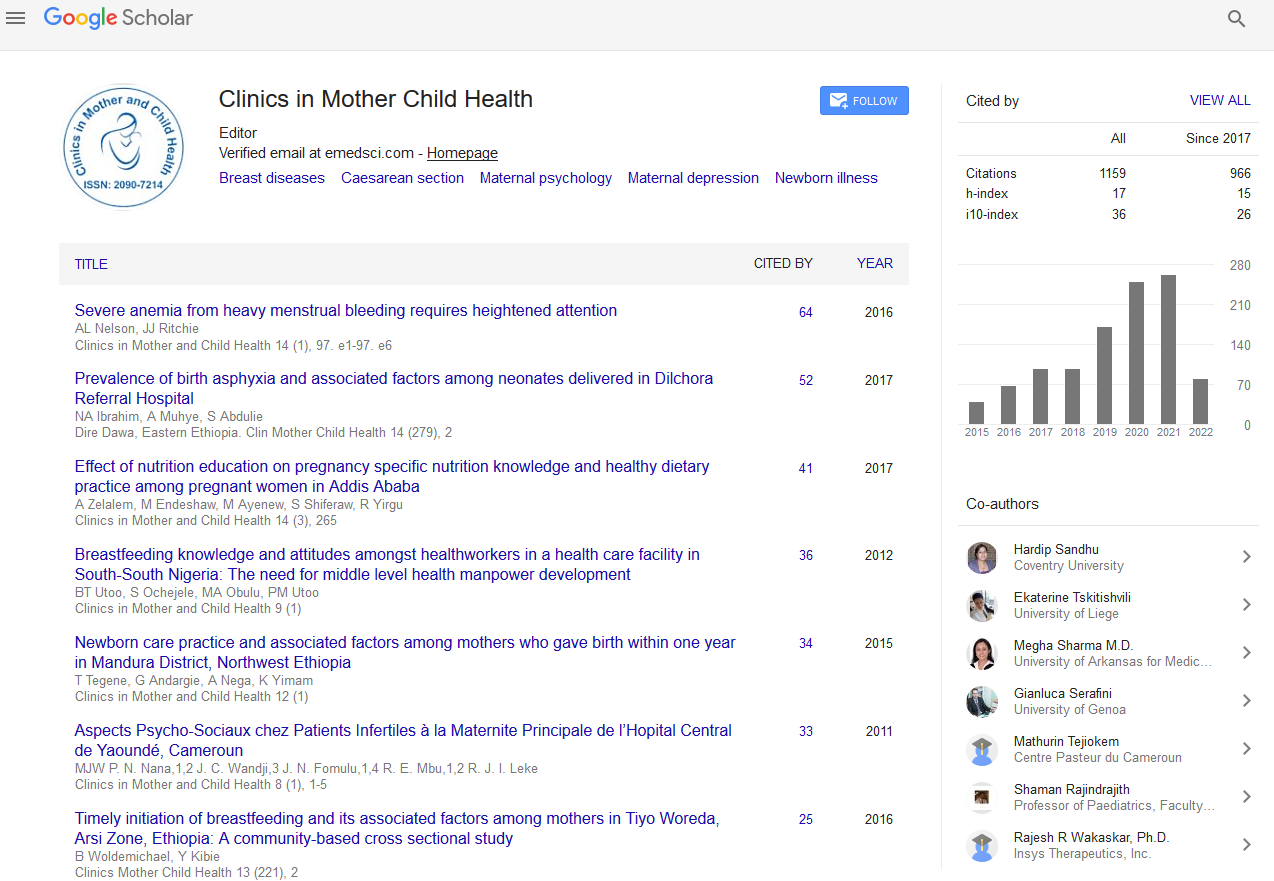Indexed In
- Genamics JournalSeek
- RefSeek
- Hamdard University
- EBSCO A-Z
- Publons
- Geneva Foundation for Medical Education and Research
- Euro Pub
- Google Scholar
Useful Links
Share This Page
Journal Flyer

Open Access Journals
- Agri and Aquaculture
- Biochemistry
- Bioinformatics & Systems Biology
- Business & Management
- Chemistry
- Clinical Sciences
- Engineering
- Food & Nutrition
- General Science
- Genetics & Molecular Biology
- Immunology & Microbiology
- Medical Sciences
- Neuroscience & Psychology
- Nursing & Health Care
- Pharmaceutical Sciences
Abstract
Pregnancy Counseling for Kidney Transplant Recipients
Yuki Yoshikawa*, Junji Uchida, Akihiro Kosoku, Chiharu Akazawa and Nobuhiko Suganum
Given the possible medical complications, risks, and the need for informed decision making, pregnancy after kidney transplantation is a serious and difficult issue. In this article, we summarize aspects related to pregnancy counselling for kidney transplant recipients based on past research.
Kidney transplant recipients tend to have overall higher rates of preterm deliveries, low-birthweight babies, and caesarean section than the general population. There have been instances of maternal complications such as preeclampsia, allograft loss, and urinary tract infections during pregnancy; in particular, hypertension is a common problem among kidney transplant recipients.
Pregnancy counselling should start when a recipient chooses renal replacement therapy, and the counselling program should be tailored to the recipient's life cycle and treatment period. It is necessary to explain the essential conditions for pregnancy, such as the need to change to a safe drug, ensure stable kidney function, and wait one to two years after transplantation before conception. Medical staff should be informed about menstrual recovery after transplantation, contraception, and unexpected pregnancy. When a recipient becomes pregnant, it is necessary to convey information about the mode of delivery and breastfeeding.
The contents of pregnancy counselling must be modified according to recipient needs, and detailed discussions are needed between medical staff and transplant recipients. Medical staff should support recipients and their family during the decision-making process before conception. It is essential for kidney transplant recipients to discuss the topic of pregnancy with transplantation physicians, so as to give birth safely and maintain their health with a donated kidney.
Published Date: 2020-02-24; Received Date: 2020-01-31


